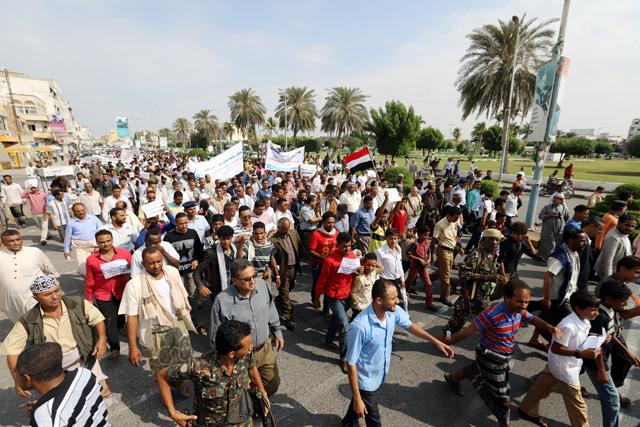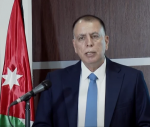You are here
CONFLICT Yemenis fear starvation after partial suspension of aid
By AFP - Jun 23,2019 - Last updated at Jun 23,2019
SANAA — In Yemen's capital Sanaa, Mohammed Omar is terrified he will not be able to feed his five children after the UN announced the partial suspension of aid in the rebel-held city.
"I cannot provide food for them, except what we get monthly from the organisation," the 38-year-old told AFP.
"What we receive helps a lot, but even that is not enough," added Omar, who fled from the flashpoint Red Sea city of Hodeida to Sanaa.
The World Food Programme announced Thursday the "partial suspension" of aid to the capital, which is controlled by Iran-aligned Houthi rebels.
The UN agency cited problems with the "diversion of food" from the neediest for the decision, which will affect 850,000 people.
Programmes will remain in place for malnourished children, pregnant women and nursing mothers.
"The suspension of aid is literally a war on Yemen," said Sanaa resident Samir Al-Saqaf. "It is a war by all means."
On Friday, the market in Sanaa's old city was bustling with people looking to buy spices, fruit and vegetables.
Customers could be seen haggling with a vendor selling live chickens, while others continued to walk around looking for a good deal.
An estimated 24 million Yemenis — more than 80 per cent of the population — depend on some form of humanitarian or protection assistance for survival, according to the UN.
Ultimately, the suspension will affect all areas in Yemen “under the control of the Sanaa-based authorities”, said WFP.
‘We are begging’
Naser Al Moaq, 40, said he had been struggling to receive aid on a monthly basis.
“There is manipulation in food aid even though my name is registered with the organisation,” the unemployed father-of-six told AFP.
“One month I get aid, the next they refuse to give me,” said Moaq, without specifying who was withholding the food.
“We find that food that had been allocated as aid is being sold in supermarkets, although we desperately need it.”
David Beasley, WFP’s director general, earlier this week said food aid was being “manipulated” and warned deliveries risked being suspended unless the Houthis changed their approach.
Such manipulation also happens in government-controlled areas, he said, but cooperation there had been sufficient to overcome such problems.
WFP has accused certain Houthi leaders of “non-cooperation”, denying access to humanitarian convoys or creating obstacles in choosing who gets the aid.
“This suspension will hurt us... not just people in one village, province or city, but the entire nation,” said Sanaa resident Zaydi Abdulrahman.
Some of those relying on food aid include public workers, most of whom have gone unpaid for months as the country’s economy has collapsed after more than four years of war.
“We are begging organisations for food after we lost our salaries,” said Zeid Abdelrabb, 35, a civil servant.
‘Rotten food’
However, not everyone in the capital agreed the organisation’s suspension would have a real impact on their lives.
Some Sanaa residents have complained that some of the food aid they have received was rotten and said Yemenis should try and live off the land.
“The food has been stored for so long that when it gets to consumers, it’s spoiled. We don’t need it,” said Ebrahim Al Kebsi.
“We can plant our land, it would be much better,” he said.
Saleem Al Abidy agreed: “We should start trying to be self-sufficient or start working on something else and not wait for baskets containing rotten food,” he said.
The Houthis have repeatedly rejected UN accusation of selling aid meant for civilians and slammed WFP for sending “rotten food”.
The rebels drove the government out of the capital in 2014 and the following year a coalition led by Saudi Arabia intervened on the side of beleaguered President Abed Rabbo Mansour Hadi.
The conflict has since killed tens of thousands of people including many civilians, according to relief agencies, while millions have been left struggling to survive.
“Everyone in Yemen is poor,” said 38-year-old resident Ibrahim Sanad. “We need help.”
Related Articles
GENEVA — Food aid meant for starving Yemenis is being stolen and sold in some areas controlled by the Houthi movement, the UN World Food Pro
SANAA — The United Nations and Yemen's Houthi rebels announced on Sunday an agreement to resume delivery of food aid suspended for six weeks
DUBAI — More than four million Yemenis will receive less food assistance as a result of funding shortages, compounding one of the world's wo

















